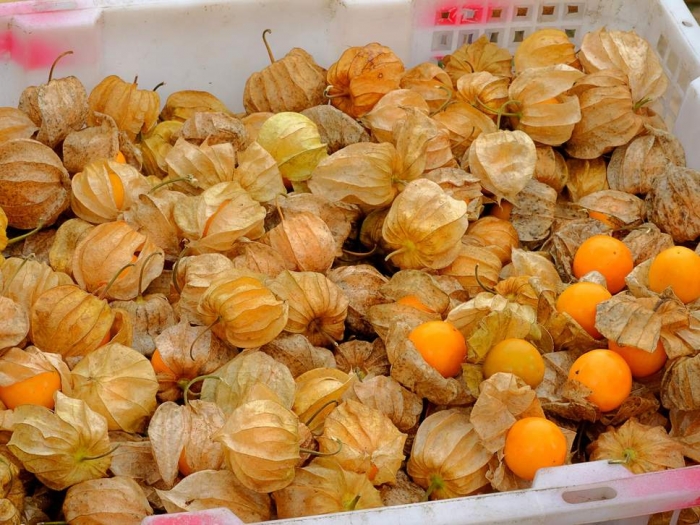Taking the groundcherry or physalis, a tasty fruit that has never gained widespread popularity, they were able to quickly boost its size and productivity by editing its genes.
In doing so, the researchers say they have turned a niche crop into one that is far more suitable for mainstream farming.
Historically, domesticating fruit has often taken centuries as farmers painstakingly breed their crops to choose the best characteristics and filter out the worst ones.
But the advent of genetic technology means this process can be cut to a matter of years as researchers identify and remove any undesirable traits without compromising the desirable ones.
Dr Zachary Lippman, the Howard Hughes Medical Institute plant scientist who led the study, said the orange, slightly sour fruits typically “sell like hotcakes” when they occasionally turn up in US farmers markets.
Referred to as a candidate for “the next strawberry” by the institute’s official release, Dr Lippman said he is sure genetic tweaking can help these fruits rank alongside all the most popular berries.
“I firmly believe that with the right approach, the groundcherry could become a major berry crop,” he said.
Though some might consider this a stretch, he said “we’re now at a place where the technology allows us to reach”.
Native to Central and South America, the groundcherry belongs to a group known as “orphan crops”, which are widely grown on a small scale but are seldom seen on supermarket shelves because they are difficult to grow commercially.
The unique flavour of groundcherries combined with their drought resistance – an important feature as the world gets warmer – made these fruits the perfect candidates for improvement.
After sequencing the genetic code of this plant, Dr Lippman and his colleagues identified the genes controlling unwanted features and used the gene editing tool Crispr to change them.
When they grow naturally, groundcherries cover a wide area and only produce small fruits less than a gram in weight.
Using their experience working with tomato plants, the scientists were able to manipulate the plants to make them more compact, while also producing more flowers and larger fruit.
The results of this work were published in the journal Nature Plants.
Dr Lippman now intends to further refine the groundcherry genome to improve fruit colour and flavour, but taking these modified plants to market will be a difficult process.
There are issues surrounding intellectual propertywhen trying to commercialise the products of gene editing, and the European Court of Justice recently ruled that genome editing counts as genetic engineering – a decision that has serious implications for marketing its products.
However, Dr Lippman said above all, this work is “about demonstrating what’s now possible”, and he hoped this work will inspire other scientists to examine other orphan crops and make them viable targets for domestication.
The Independent
More about: Gene
















































